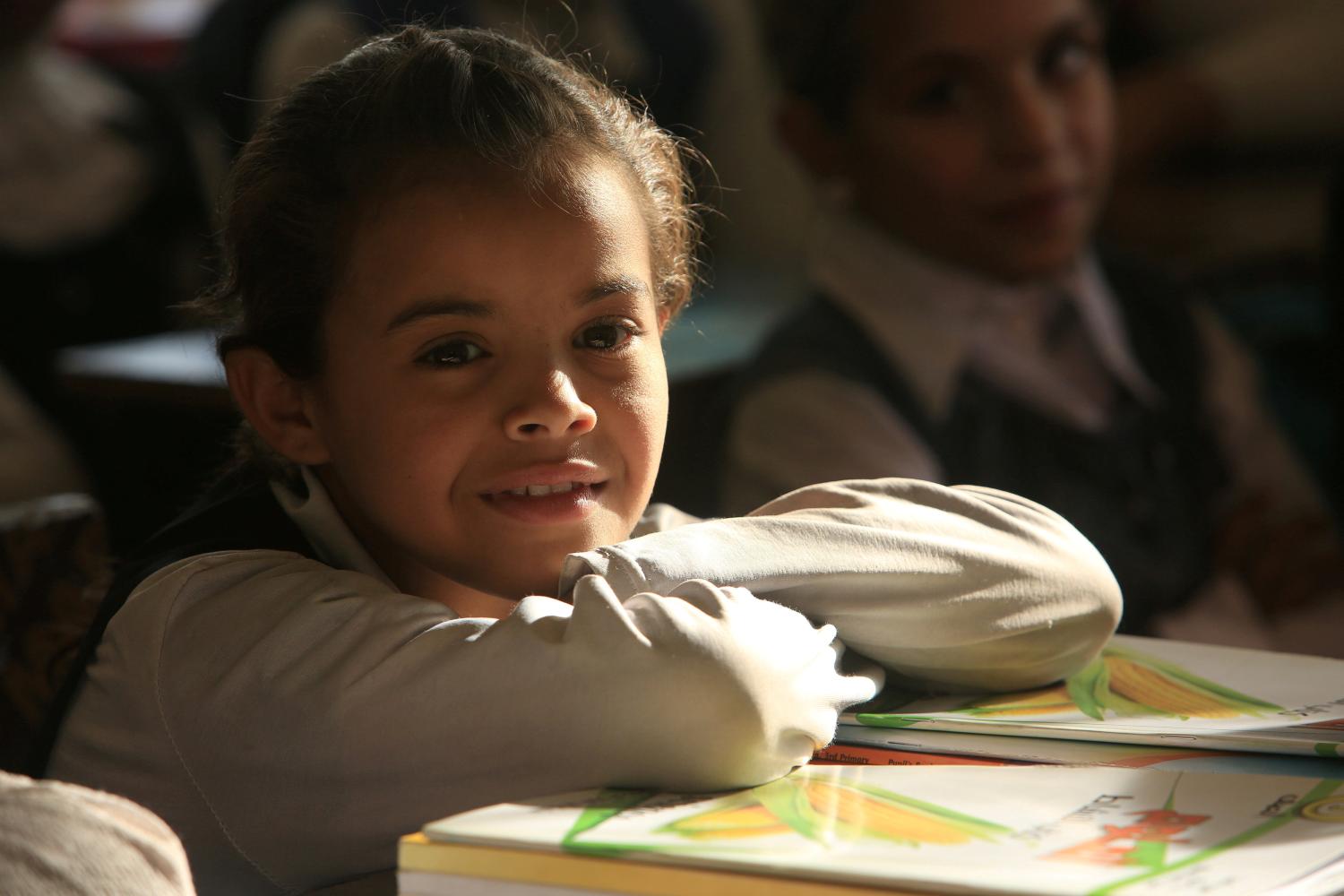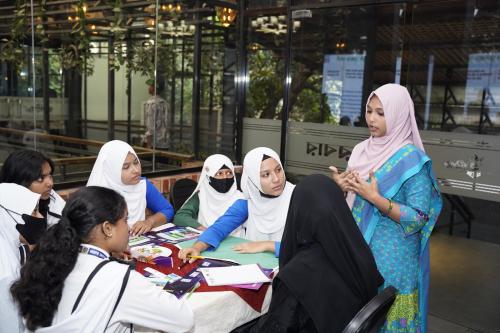Reintegrating school-aged mothers into formal schooling is met with many challenges for low-income families in Jamaica. While there is progress in getting girls back into classrooms before and after giving birth, lack of child care is an overlooked barrier.
The Women Centre Foundation of Jamaica (WCFJ) provides critical services during prenatal and post-natal phases of school reintegration, offering a haven for women to continue their education. In addition to counseling, mentoring, and continuing education, the center also provides short-term day care facilities for babies of teen mothers.
There are currently 18 WCFJ main centers but only 11 are outfitted with child care facilities that meet the standard for quality child care support. The remaining seven need to build new facilities to provide child care services in keeping with Early Childhood Commission Jamaica standards. Unfortunately, when the mother returns to the formal school system, she is once more confronted with the reality of no child care services. Due to the level of stigmatization currently associated with teen mothers, offering these services at the school would require a complete overhaul of social norms.
Why is access to education important?
Research shows that continuing education for the teen mother reduces the likelihood of multiple pregnancies, exploitation, and daughters becoming teen moms themselves—thus disrupting the cycle of intergenerational poverty. Further, children of educated mothers are more likely to survive and be healthy due to greater access to better nutrition and immunization. However, providing access to education for the mother will never be enough if they are met with basic logistical challenges of caring for their children.
In my previous research, I highlighted a case where a school-aged mother could not receive uninterrupted education due to her lack of child care. The situation was compounded as the child was often ill and needed constant attention from caregivers, resulting in the mother not fully benefiting from her second chance at education. She failed to complete exit examinations to matriculate to further studies, which could have improved her economic situation. Due to the lack of provisions in place to provide for child support and the subsequent barrier to education, the likelihood of this mother remaining in poverty and having another early pregnancy is high.
What can be done?
In order to secure greater life outcomes for teenaged mothers and their children, a national response is required to inhibit factors often associated with impediments to child care support. There is hope. As part of the Ministry of Education Youth and Information’s (MOEYI) K-18 Strategy, the government has committed to providing equitable access to education through several leapfrogging initiatives. These include the provision of day care centers throughout the country to bolster early stimulation programs at an approximate cost of $5 million. With an aim of establishing two-day care centers in each of the 63 provinces in the country, there should be 126 day care facilities established for all women who need those services for the 2018-19 academic year. These centers are safe and free of cost and will provide a conducive environment to bolster child development. Studies have shown that the majority of brain development takes place during the first 1,000 days of life, making such interventions crucial.
Where have other child care facilities been established?
While the initial 126 institutions may not be sufficient to address all child care service needs, it is a step in the right direction. Hopefully it will inspire development partners to establish additional centers throughout the country. South Africa and parts of Latin America including Chile and Columbia have implemented this initiative and could provide important lessons for Jamaica, as could parts of the United States. Michigan, for instance, offers day care services for newborn to preschool-aged children of teenage mothers. The Washington, D.C. area provides child care services for the children of teen parents in high schools, and the Young Parent Child Care Program at the Child Care of the Berkshires, Inc. in Massachusetts is another prominent initiative that provides high-quality toddler care and other services for teen parents. All these examples emphasize the need for day care centers that ensure equitable and quality access to education in keeping with the U.N. Sustainable Development Goals.
The Brookings Institution is committed to quality, independence, and impact.
We are supported by a diverse array of funders. In line with our values and policies, each Brookings publication represents the sole views of its author(s).






Commentary
Why child care is essential to young mothers’ education in Jamaica
September 18, 2018